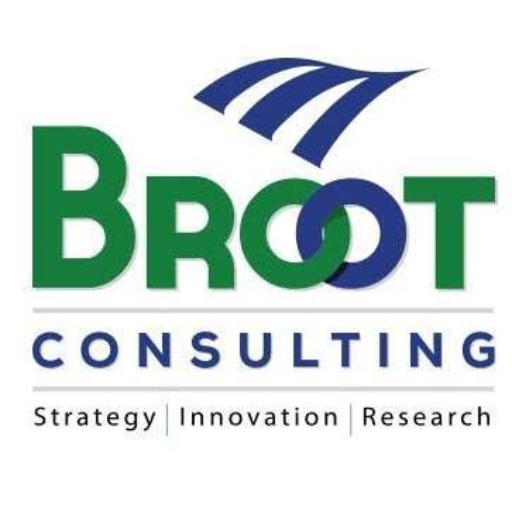An inclusive energy strategy:accelerating african development through rural electrification




AN INCLUSIVE ENERGY STRATEGY: ACCELERATING AFRICAN DEVELOPMENT THROUGH RURAL ELECTRIFICATION
—————————————————————————————————————-
Olukunle A. Iyanda: The person we are talking to today on spark is a thorough bred professional and one of the few individuals with incredible experience and qualification in the rural electrification space. Dr. Sanusi Mohammed Ohaire is the current Executive Director of Rural Electrification fund, at the Nigerian Rural Electrification Agency. He obtained his bachelor’s degree in Economics from the University of Jos, a masters degree in Energy Studies with specialisation in Energy Finance from Centre for Energy, Petroleum, Mineral Law and Policy from the University of Dundee, Scotland in the United Kingdom. He also obtained his Doctorate Degree in Rural Energy Development from the prestigious Institute for Energy and Sustainable Development, De Montfort University, Leicester, United Kingdom. He is a member of the Professional Association of Energy Economists, Lagos Oil Club, Society for Petroleum Engineers, and the Energy Institute of United Kingdom. Dr. Ohaire, I am glad to have you on Spark.
Sanusi Ohaire: Thank you very much, it is a pleasure to be here.
Olukunle A. Iyanda: Now let’s start, as the Executive Director of the Rural Electrification Fund, can you tell us exactly what the Rural Electrification Agency does? How is it different from other energy distribution agencies?
Sanusi Ohaire: Thank you very much. The Rural Electrification Agency is a creation of the Electric Power Sector Reform Act of 2005, which spells out and regulates the current structure of the power sector. Our role in the act is to promote, provide and support rural electrification. It was important to have an implementing agency such as ours because the market was going into a private arrangement whereby the generation arm, the distribution arm of the old monopoly (NEPA) was now in private hands. At the time, electricity access was at about 40-something% of the country, we still had about 50-something percent of areas that was not covered by the arrangement where the distribution of power will get to. So it was important that the government had an agency such as ours to take care of those people such as the unserved and underserved to provide electricity for them while waiting for the grid to be extended. And I am sure you know that decisions around extending to some of these communities being in private hands has to do with viability, profitability and all those things. So obviously, there would have been a lag period to allow for the distribution companies to settle in and understand the market, make some money and try to expand along their expansion plans, so the rural electrification agency was set up by government to provide electrification to those unserved and underserved communities which is a lot. The quantum of people that are currently unserved; we are looking at 80 million Nigerians that do not have access to electricity. So, it is a herculean task, and as such we have both the agency and the rural electrification fund which is also meant to try to partner with private developers to provide these services in line with the electric power sector reform act. Basically, the government is moving away from the way it used to do things, where they just pump in projects, get engineering, procurement and construction contractors, to do projects without having or thinking through the sustainability of those projects. So, the idea of the fund is to help the agency structure the project through very good business models with the private developers that can now implement these projects on our behalf and also bring in some of their money to invest in the project in rural communities, then make back their money over time. So, this arrangement ties them to the rural communities for upwards of 15, 20 years, providing services and trying to make them happy, so that their business can grow as well. So we are moving away from government putting projects on the ground without having solid, sustainability plans with partnerships where the vision is to have the partners there for upwards of 10 to 15 years providing services to those rural communities and that is what we have been doing for the last four years.
Olukunle A. Iyanda: How successful has the Project been so far?
To be honest, we have recorded a lot of success. Initially, we had a lot of teething problems because the act like I mentioned had been there since 2005, and the agency started operating in 2006. The act specifically mentioned that 1 year after setting up the agency should have a rural electrification strategy and implementation plan. Unfortunately, that did not happen until we came onboard in 2017. So that was the first foundation, the first rural electrification call, and currently, we have started the second rural electrification call for proposals. Our projects are doing well, and on the strength of that, we have even gotten some money from The World Bank to develop a new program around the concept of reference to call the Nigerian Electrification Project. It is a $350 million loan to the government for providing these kinds of services similar to what we are doing in the rural electrification fund. Also on the strength of that, we got some funds as a way of concessional loans from CBN through the 5 Million Solar Power Naija project to piggyback on and support the programmes that we already have es[ecially from the finance angle because one of the major challenges is getting funds at concessionary rates that can support what we are doing in rural communities. Conventional rates are upwards of 20%, so it is important for us to deliberately look for those sorts of funds that will work with the current arrangements and business models that we have to incentivise developers to go into rural communities. So yeah, it has been very successful; our problem now is to scale up as quickly as possible, so that we can meet the access target rate of 2013 in line with the United Nations Sustainable Energy For All target of providing electricity access to all.
Olukunle A. Iyanda: A few decades ago, the ratio of rural-urban settlement in Nigeria was 65% which means that 65% of Nigerians lived in the rural areas because we have an economy that is majorly driven by agriculture. But today, only 48% of Nigerians live in rural areas. So, there’s a massive migration of people from the rural areas to the urban areas due to issues like lack of infrastructure including lack of electricity access. In your own opinion, why do you think power generation and distribution to the rural areas has been a major problem?
Sanusi Ohaire: We have had different kinds of problems for different segments of the sector. Remember, the power sector like I mentioned is a value chain of various components and moving parts. So we have the generation, the distribution, the transmission, rural electrification and other segments. So, let me speak to the rural electrification aspect first before I move into talking about the grid issues. For rural electrification, the problem we had before was the lack of attention to the sector. Everybody was focusing on the grid side of things; they wanted to solve the problem of generation, transmission and distribution so the political will and all of the funding was going into the grid side. But things have changed now because of the political will that the government now has to ensure that rural communities have access to electricity. This is also largely informed by various plans and policies that we have worked on over the years in line with global trends in energy transition really, to inform the government that while we are trying to solve the problem of the grid, it is important for us to have a robust energy mix, and also look at how we can tackle the problem of 80 million Nigerians not having access to electricity. The provision of mini-grids for smaller communities under megawatt was developed, and that was the watershed moment for us in this sector because it created the enabling environment, and gave succour to private developers. This is because investors need clarity of how everything is done, and if there’s a regulation that speaks to that, it makes them happy and makes them want to invest. Additionally, we had the advantage of getting capable hands to take over the leadership of the rural electrification agency four years ago and the agency has now become the driver of the rural electrification initiative. Before then, there was really no driver of this, so have now taken over that mantle; we are driving it, we are coordinating it, we are working with international development agencies, we are working with sister agencies, we are working with states, local government and communities, and basically just doing coordination in line with our mandate. This is why you see that there is a lot of off-grid activities, and it has really helped in meeting some of the targets for renewable energy in Nigeria. Finance was also a problem and is still a problem, but you can see efforts from the government. Like I mentioned, this area of raising funds is actually my area, and we’ve been able to raise a lot of money, but it is still not enough given the magnitude and the scale of the problem. So we raised money from the world bank, 350 million dollars; the African Development Bank, 200 Million dollars; the CBN has provided concessionary loans of about 140 billion Naira, so if you qualify for some of these programmes, you can now meet up with the CBN loan. We have our yearly capital projects which we still do, and the government provides funds for that as well. My rural electrification fund has been mobilising various funds like the one with the European Union and German government funding implemented by GIZ to the tune of about 10 million Euros, the UNDP is providing about 8.8 billion dollars. A couple of other sister agencies are now providing some of the guarantees for even some of the developers to get these loans from the CBN. For example the NSIA; we are in discussion with them and they are guaranteeing up to 20 billion Naira petroleum equalisation fund so that we can have off-takers of these loans, and they can go on and do projects on the ground. States governments are also providing guarantees. So, these are some of the things we had to do within the rural electrification space to activate a lot of the projects you are seeing now, and it was necessary to bring everybody on board. The problems used to be all of these things that I mentioned that we are now doing; the problems used to be there was no regulation, there was no policy, there was no political will, there was no money. But we have solved the problem of no regulation, policy and even plan. We are still working on data every day because data is important for effective planning. The funding issue is still there, but you can see deliberate efforts towards solving it.
Now, about on-grid issues. The problem with the on-grid aspect for me is the misconception of how the power sector should be run just like it is with the petroleum sector.
“Because of the effect of NEPA providing cheap electricity at economical rates, people are used to having cheap electricity. But now it has moved to the private sector, so you can’t really continue to generate electricity without someone paying for it, someone has to pay for it.”
So it is either we allow the market to determine the regulated rate that is acceptable and allows for cost recovery, or charge a lower rate and someone has to pay for the difference and the government has been paying for it since the market was privatised and commercialised so this is the issue. Perhaps we might not want to go into providing funds for when there is uncertainty. What happens when interest rates go up? What happens when exchange rates for instance are unfavourable or it increases? What happens when the cost of gas increases? What happens when there is some sort of disruption to government policies? We have regulations that have actually spelt out how these things should work, but for some reason, I don’t know, I don’t want to call it political or attribute anything to it but it is just not working. And anytime the regulator tries to allow the regulation to take shape, there are always protests. Whatever it is, electricity is a product. For us in rural communities, as I mentioned, the regulations are clear and people are doing their business, in fact, the rural people are not complaining even though their tariffs are higher than what city folks pay. But they are not complaining, they are getting service and cost-recovery,they have the power to regulate their usage as well so that their tariffs can come down. For me that is the way to go, we need to allow market forces to determine a cost recovery tariff that would allow a reflection of the cost because you cannot buy something at a certain rate and then sell at a lower rate- it doesn’t make sense. That is why we have liquidity issues within the power sector on the grid side of things and I am hoping that the managers of that aspect of the power sector will eventually be able to succeed. But for us we are doing rural electrification, and we don’t have such issues within our area of focus.
Olukunle A. Iyanda: What is the percentage of people that have light in rural areas?
Sanusi Ohaire: 70% did not have access but we know that we have done a lot of work between 2017 and now so I’m not going to tell you that it is now 50% or 60 because the truth is we haven’t done a Holistic analysis or gathering data on ground to justify the numbers but it is something we are also working on, it is a huge project to go round and gather this data. We are bringing all of the international agencies that are interested in this sort of task together to see how we can go around and do these things. We started in 2018 or 2019 to visit some states, a few states to do sampling, but because of insecurity again you understand that it didn’t allow us to put boots on the ground and really go round. That was the stage that we were at then because we had done a lot of desktop usage of spatial data and we were getting numbers, but then I insisted, I am tired of just doing secondary spatial desktop research, I wanted actual numbers. We started on going to a few states bit then we had to stop because of problems of insecurity and until we are able to be on ground and do these things, I myself may not believe in absolute terms what the numbers are
Olukunle A. Iyanda: Alright, I agree with you absolutely on that. You said that you get funding from international development agencies and I have been wondering do you bring private sector into rural electrification in Nigeria? Correct me if I’m wrong but I believe those in the rural area their earning power is not as high as those in the urban areas. So the question of sustainability is the first thing that cropped to my mind, how do they pay for it? If you bring
Sanusi Ohaire: The question of ability and willingness to pay has been settled a long time ago in Nigeria, when we did a few pilot projects early 2011, 2012,2013 and we saw from those pilot projects that the willingness and ability for the services are promptly provided is there, so that one has been long settled. The people are paying and they are paying promptly and they are eager to pay. We are not just supplying electricity to the households, we are also targeting communities that already have some form of electrification, alternate electrification. As you know some of these villages, they don’t have light but they have generators so they are already using diesel generators or gasoline generators to power their businesses. The developers usually lay emphasis on productive use so they want to see communities that are farming, communities that have farming clusters, that have SMEs (small and medium enterprises) that have some businesses so the electricity would now help them, for instance if you have someone in the farming community, so in processing this products, if its cooling for instance it helps in cooling and the likes so you notice that if you are providing this electricity it’s even cheaper than using diesel constantly but then for the households it might look slightly higher but they don’t consume as much as we do in the city so they end up paying peanuts at the end of the month
Olukunle A. Iyanda: Since you started this project has there been any increase in SMEs in the rural areas? Because the reason why people are leaving the rural areas is because there is no infrastructure and if you have infrastructure, have you ever noticed any
Sanusi Ohaire: we have a program specifically targeted at productive use, we are not just providing electricity we are also providing equipment, efficient processing equipment for instance, as part of the package in some of our programs because we’ve realized that we don’t want to just provide access to households we want to keep those people in the villages, so we are encouraging businesses in addition to giving them electricity so what we notice is that yes, a lot of people are interested and they are picking up the pace and it’s keeping them in the village and we are certain that if we continue to scale up the work across the country the quantum of the numbers of persons leaving the village to the urban areas would reduce and most of them might even decide to come back.
Olukunle A. Iyanda: Alright, so I want to ask a question, if Nigeria is to make any meaningful progress in rural electrification in the next 10 years, how much do you think Nigeria actually needs to invest?
Sanusi Ohaire: It is a couple of billions of dollars right? We did an analysis right and I think we are looking at around 2.5 to 3 billion dollars for those that are unserved. This would be channeled through various technologies and various programs and various vehicles, simultaneously to be able to meet the access target
Olukunle A. Iyanda: Hmm, that’s interesting so do we have a clear strategy on how we can raise this fund in the next x years?
Sanusi Ohaire: Well, we are already raising some, I think the question is how quickly can we raise all of this? We have a couple of proposals with various people, various stakeholders and various agencies but you know things that have to do with finance is not really within our purview we are more of an implementing agency it is left to the ministry of finance and the likes that have this mandate to do so when we have a lead we usually try to connect them to the appropriate portals. We have a fantastic relationship with the ministry of finance. The government has really really supported it’s a matter of competing needs that are still of preference but the Government has given us all the necessary support based on the proposals we’ve given. We are hoping that we would continue to get this support and in no time we would get all the funds that we need. Part of the problem why we are still trying to raise funds is because the fund, the rural electrification fund itself, has not been given a sustainable funding vehicle if you compare it to other funds like TETfund, Petroleum Equalisation Fund, you notice that the arm that created them specifically mentioned a percentage that should come from a certain market that goes there , for the petroleum equalization fund it’s coming from the pump price of petrol which is sustainable because that money keeps coming in everyday. For TETfund it’s from a certain percentage of income by companies, profit by companies operating within Nigeria, I think 2% or so, I’m not sure
Olukunle A. Iyanda: I have just 2 questions before we leave. If you look at rural electrification project in the world, globally, do you have any model in any country that has worked very well? What did they do? How can we learn from them? And how do we situate that within our local context
Sanusi Ohaire: Yeah, we have models from southeast Asian countries, china is also a very good example of how they were able to electrify 1,5 or 4 I don’t know billion people. We have India who recently did something but we are still questioning the numbers. We have Bangladesh so yeah different models. If you look at Brazil they did more of the grid extension they believed they just wanted to extend the grid to every part of the country and it worked for them and if you do more of the Bangladesh-China model they did more of the decentralized solution and it worked for them. Coming into Africa as well we have a few countries that are currently doing something, Nigeria is one of the leading countries in terms of putting all the necessary measures in place, we’ve done all of this studies before we decided to do our mini regulation, before we decided to set up the agency that will drive the process and have this structure. So what the problem is now is implementing what we already have. I think we have very good policies and regulations to help us achieve what we want to achieve. It’s just how to implement and have that will to follow the regulations to the latter that is left
Olukunle A. Iyanda: Alright, thank you so much, my last question is, if everything is within your power to do, what one thing would you do differently so that we can have a radical transformation of rural electrification in Nigeria
Sanusi Ohaire: So I think putting the right people in place is very important and then empowering them to achieve their mandate is very critical, you don’t do politics with critical areas like power, you need to put the right people in place, people that know what the law says and have experience in doing these things and then you cover them by managing the political angle of things right, but I think what I’ve noticed is that a lot of things are political in Nigeria. You want to do your job it’s turned into politics and the people also do not help. A lot of people don’t understand what is supposed to happen and there is already a bias when it comes to Government doing its job and people just see it as “these guys just enjoy making us suffer” for me if there’s work that needs to be done it should be done. If you do not want it to be done it’s a different thing but there is a solution to everything, if you want to do surgery, you should expect a recovery period and all of that. It’s either you do it or you don’t so for me that is the case. You get people that can do it, you give them the tools and empower them to do the job and we would recover together
Olukunle A. Iyanda: Thank you so much, for me I believe what you’ve said is there’s a need for us to depoliticize energy development in Nigeria, you know, just say it the way it is, we need to depoliticize it, we need to put the right people there, we need to put those who know what they are doing and with that, I believe things would move faster than they are now. It’s been a pleasure to have you, Dr Ohiare. Is there anything that you feel our audience should expect from rural electrification agency in the next few years that can be of economic hope to people especially the young people who want to have their businesses in the rural areas where they believe the cost of living, the cost of doing business is going to be cheaper than being in Lagos, Ibadan, Abuja and all those places
Sanusi Ohaire: Just to encourage them and let them know that we understand their pain, we understand their plight, young people too, in fact, the agency is run by a young MD, I am also young and the head of the technical department is also a young person. There are so many young people doing business with us, we have empowered a lot of young companies throughout the program and they are the ones really driving this, we are just creating the environment so they should expect more communities to be lit up, provided electricity to. Most of these our programs, every day they are evolving and so they evolve we implement and it takes a bit of time so they should just keep expecting more from us, we’ve done quite a lot but a lot more needs to be done, we are only just going to take it one community at a time as we progress and provide electricity, the horizon is clear, the future is bright. Let’s keep hope alive and hopefully, we would get to their community soon
Olukunle A. Iyanda: Beautiful, I agree with you when you said those at the helm of affairs of rural electrification in Nigeria are quite young. I think that’s a bit exceptional and I think they put the right people there who can deliver, people who understand the pain point. Thank you so much I think you’ve given us quite an insight. It’s a pleasure to have you on this program
Sanusi Ohaire: Thank you so much I really appreciate it
Thanks for listening to this episode of the Spark by BROOT Consulting. To subscribe to this show on iTunes, Stitcher or via RSS, head over to www.brootc.com /spark so you never miss a show while you’re at it. If you found value, we would appreciate our rating or simply tell a friend or colleague about the show and that will help us out. You might also want to check out our open workshop for the month or the free resources and materials on our website www. brootc.com
—————————————————————————————————————
About the author(s)
- Olukunle A. Iyanda, PhD is the Chief Executive Officer of BROOT Consulting.
- Adeola Ojoawo, PhD is the Director of Strategy & Growth at BROOT Consulting.
- Sanusi Ohiare, PhD is a Nigerian rural energy development expert, public servant, the executive director of the Rural Electrification Fund and board member of the Rural Electrification Agency.
